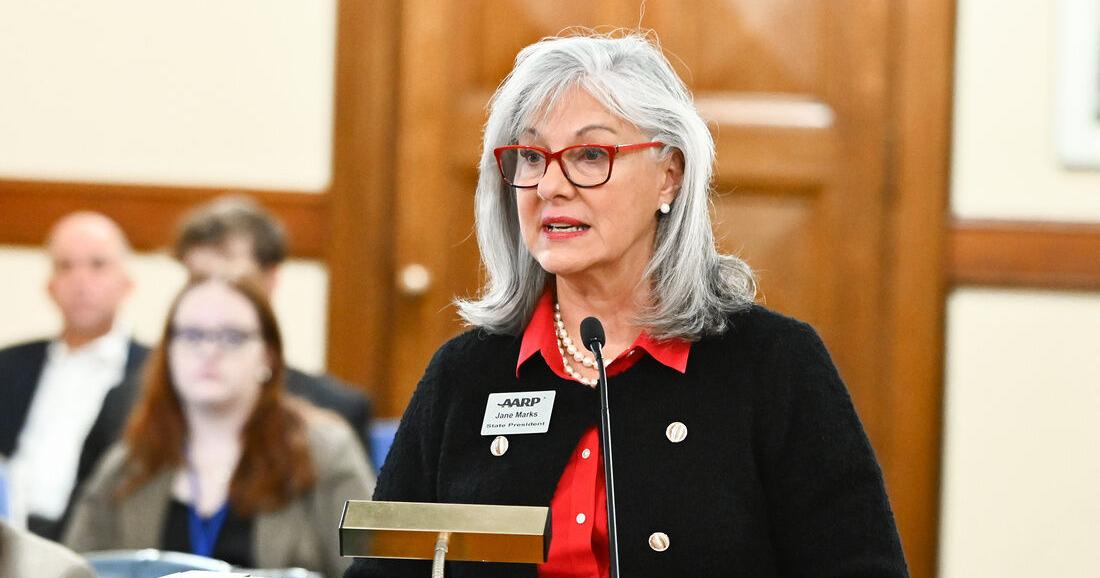
CHARLESTON — The state of West Virginia does not have enough trained senior care workers to meet the demands of its aging population, according to a new study released by AARP West Virginia.
One-in-four West Virginians will reach or exceed the age of 65 by 2030. The state’s direct care workforce is unable to meet the current demand for service, and therefore unable to accommodate the anticipated future growth of that demand.
“I always say that AARP believes in data,” W.Va. AARP President Jane Marks told the West Virginia Senate Workforce Committee on Friday, before providing, ”a sampling of some data that we felt needed attention.”
The U.S. Department of Labor defines direct care workers as “workers who provide home care services, such as certified nursing assistants, home health aides, personal care aides, caregivers, and companions.” Marks added that more than 15,000 residents currently require the services of direct care workers, noting that the workforce is understaffed by “almost 4,000 people.”
In June 2022, AARP teamed up with the West Virginia Department of Health and Human Resources to create the W.Va. Direct Care Task Force with the goal of developing “actionable legislative and regulatory recommendations to significantly increase West Virginia’s direct care workforce, recruitment, and retention,” Marks said.
Marks said the task force focused on three critical areas in its recommendations — wages and benefits, education and training opportunities and improved job satisfaction. It was important to the task force, Marks said, that both the voices of direct care workers, and the “uniqueness of West Virginia,” were taken into account.
The recommendations made by the task force include offering affordable health care options and paid time off, assisting workers in the sourcing and acquisition of training and educational grants, and providing childcare reimbursements.
“We’re quite pleased that these recommendations have been favorably received so far,” Marks told the committee. “In our meetings with state and agency leaders, we’ve been heartened by their interest and response.”
“It’s interesting to note that, one of our task force members who is the director of a county aging program that provides in-home services, reported last year that — due to a lack of workers — they were unable to provide 3,000 hours of service demand,” Marks said. “This resulted in one client’s premature move to a long-term care facility, which, of course, results in a greater cost to the state of West Virginia.
“We believe that these recommendations are the best place for us to jumpstart the efforts to meet the current and growing direct care workforce challenge,” Marks concluded. “We’ve got work to do, but we have the opportunity to do something extraordinary about the challenge of caring for our most vulnerable.”
Sen. David Stover, R-Wyoming County said he was startled by the number of workers that West Virginia needs.
Sen. Rollan Roberts, R-Raleigh County, then questioned Marks about the possibility of “grandfathering” retirees into the direct care workforce, saying, “You are recruiting, all of the time, people to join your organization (AARP).”
“Is there an arm of the organization, or can there be some interest generated, that will help the seniors who have retired but want to perhaps stay — at least part time — to be grandfathered back into these systems?” Roberts asked.
Marks advised Roberts that AARP provides that type of assistance to not only retirees but veterans as well.
“One of our recommendations actually talks about this issue,” Marks said. “One of the other things that we see, sometimes [when a person] is finished with the role of family caregiver, they have found that they have an affinity for this work, and they do want to enter the workforce as a paid position.”
Referencing the legislature, Roberts said, “If we are going to be one-in-four over 65 (years of age) by 2030, then we better be doing something in the coming years to keep those who are retiring engaged.”
“Full disclosure, I am one of those senior citizens,” Roberts said, “and I’m staying engaged.”
